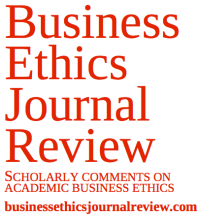 Philadelphia’s controversial new soda tax offers a lesson in the unintended consequences of “sin” taxes, in (what public-finance scholars call) the border-tax problem, and in tax incidence.
Philadelphia’s controversial new soda tax offers a lesson in the unintended consequences of “sin” taxes, in (what public-finance scholars call) the border-tax problem, and in tax incidence.
Three quick thoughts:
(1) Sometimes, political authorities place taxes on disfavored products (e.g., tobacco) in order to discourage their purchase and use. That is, they hope the tax will deter (some) consumers from buying the product. Other times, those taxes are placed in order to raise revenue. That is, political authorities hope the tax won’t deter (many) consumers from buying the product, but will bring a tax-revenue windfall. However, consumers’ responses to the taxes aren’t governed by the intentions of political authorities. Here, a revenue-raising tax is being treated by consumers (according to soda distributors) as a use-deterring tax. (Or maybe not, because…)
(2) The soda tax is a citywide tax: it doesn’t apply even one foot outside the city limits of Philadelphia. The smaller the political jurisdiction in which a tax is applied, the more susceptible is the tax to the border-tax problem—the willingness of citizens to avoid taxes on purchases by making their purchases outside the taxed jurisdiction. Here, according to the linked article, Philadelphians aren’t reducing their soda consumption because of the tax; they are reducing their soda purchases in Philadelphia because of the tax—making their soda purchases instead in nearby cities and towns.
(3) Philadelphia Mayor Jim Kenney has made many statements criticizing soda distributors (on whom the city’s soda tax is nominally levied) for passing this tax on to retailers (who have, in turn, passed it on to consumers) in the form of higher prices. He impugns the soda distributors’ character for not simply swallowing the tax in the form of a diminished bottom line. However, just as the intentions of political authorities don’t determine how consumers respond to a tax, those intentions also don’t govern who, ultimately, pays the tax. Economists call this tax incidence. Among the factors influencing the incidence of a tax is the price-elasticity of demand for the taxed product. Because the price-elasticity of demand isn’t controlled by political authorities, neither is the incidence of the tax.
The bottom line is that although in Mayor Kenney’s imagined world the tax would fall solely on soda distributors, soda prices (and jobs attached to supplying soda) would remain unaffected, consumers would not alter their soda-purchasing patterns and locations, and Philadelphia would enjoy a tax-revenue windfall, the real world may deviate predictably from that imagined scenario. >>>
LINK: Soda companies, supermarkets report 30-50 pct. sales drop from soda tax (by Julia Terruso for Philadelphia Inquirer)
Two months into the city’s sweetened-beverage tax, supermarkets and distributors are reporting a 30 percent to 50 percent drop in beverage sales and are planning for layoffs.
One of the city’s largest distributors says it will cut 20 percent of its workforce in March, and an owner of six ShopRite stores in Philadelphia says he expects to shed 300 workers this spring.
…
“I didn’t think it was possible for the soda industry to be any greedier,” [Philadephia Mayor Jim] Kenney said in an emailed statement. “ … They are so committed to stopping this tax from spreading to other cities, that they are not only passing the tax they should be paying onto their customer, they are actually willing to threaten working men and women’s jobs rather than marginally reduce their seven figure bonuses.”The 1.5-cent-per-ounce tax on sweetened and diet beverages is funding nearly 2,000 pre-K seats this year as well as several community schools. The city hopes it will bring in $92 million per year for the education programs and to in part fund renovated parks and recreation centers.
…
The tax, passed in June, went into effect Jan. 1 and is levied on distributors, who have passed it on to retailers.Jeff Brown, CEO of Brown’s Super Stores, which manages six ShopRite stores in the city, said beverage sales were down 50 percent from Jan. 1 to Feb. 17 compared with the same period in 2016. More concerning, he said, is a 15 percent dip in overall sales at city stores.
“People didn’t change what they drink,” Brown said. “They changed where they’re buying it.”
…
Danny Grace, head of the Teamsters union, representing many of the drivers, said members have seen pay cut by as much as 70 percent because they’re moving fewer products. “Many of them have quit as a result,” Grace said. He did not provide specific figures.
What do you think?




Recent Comments